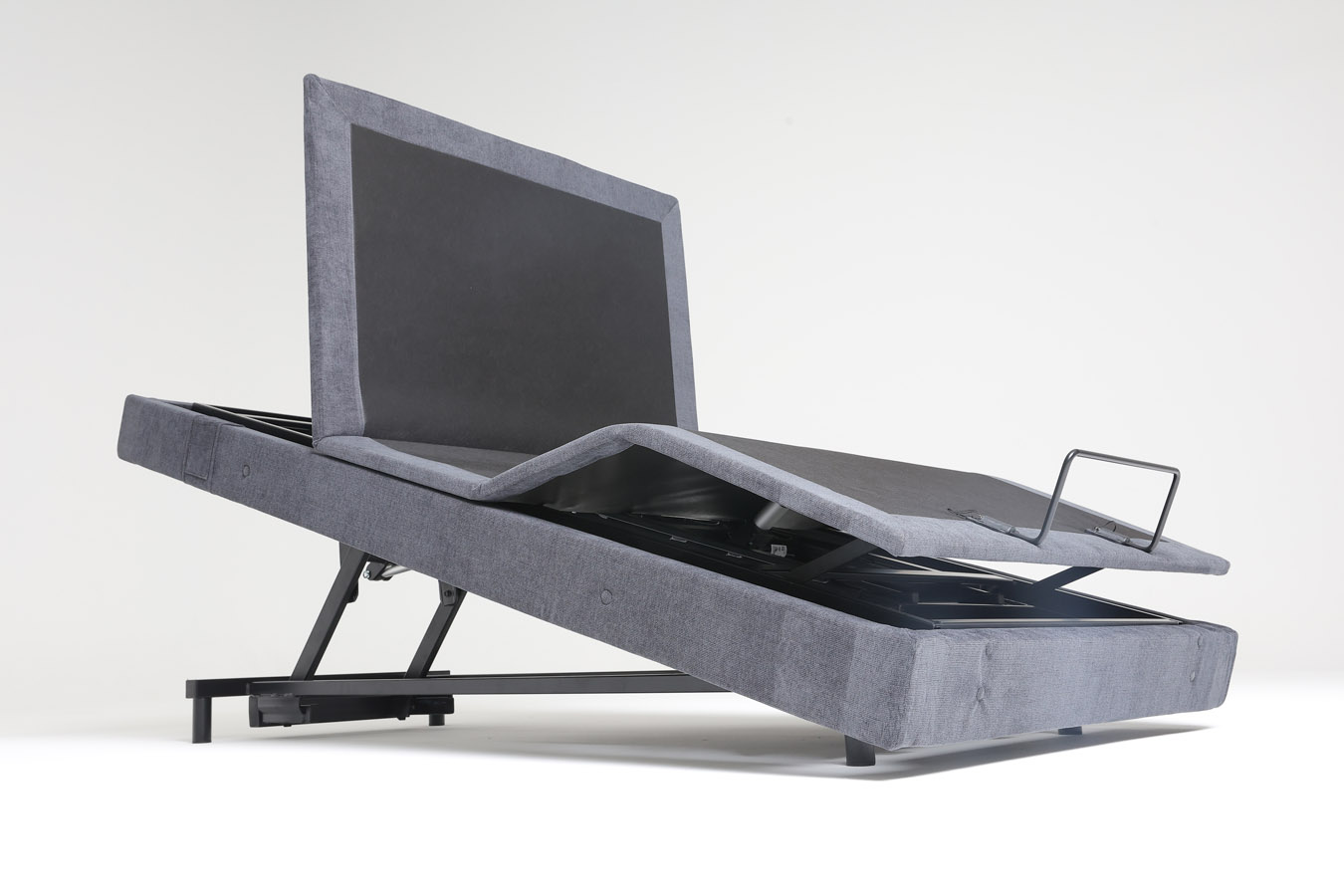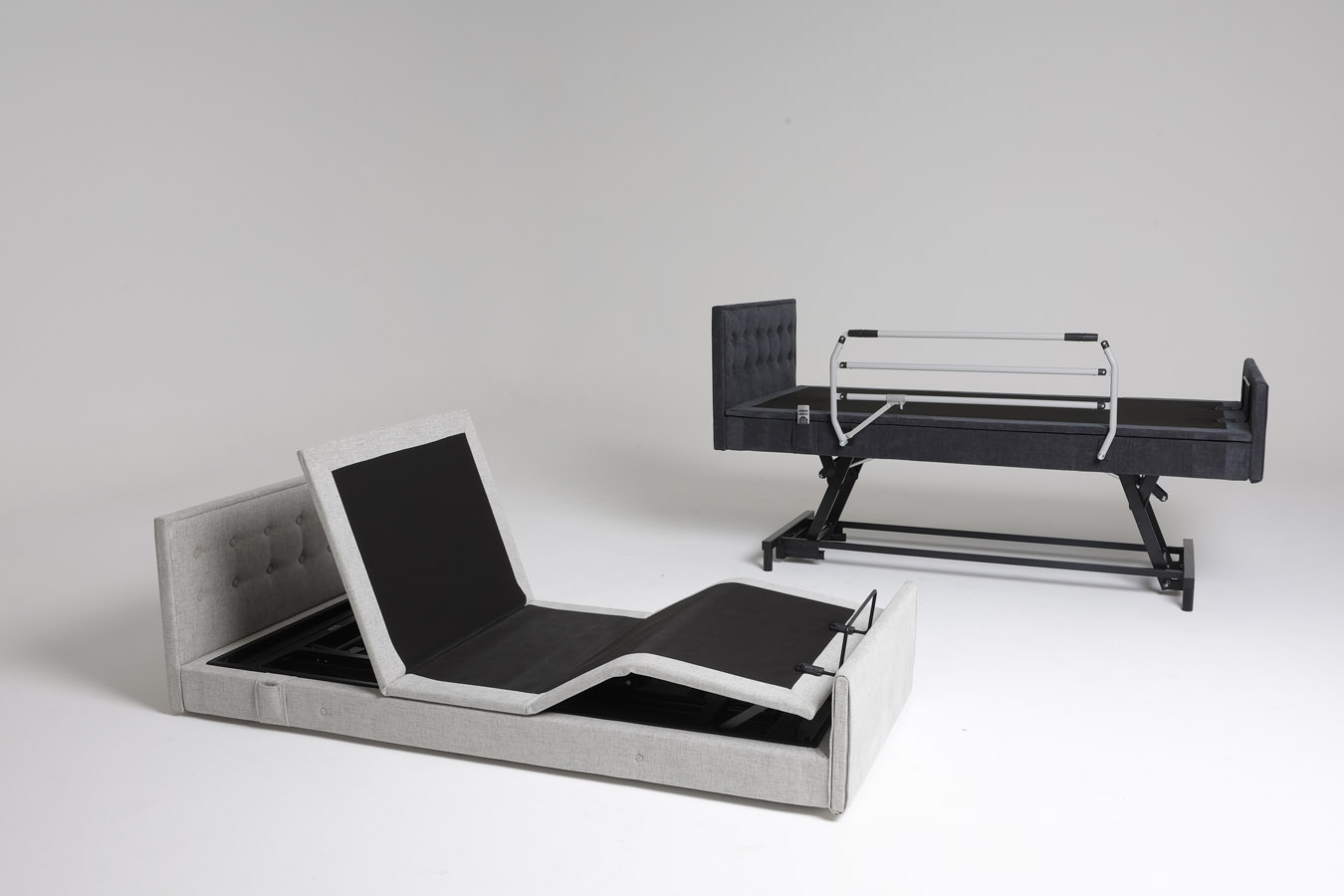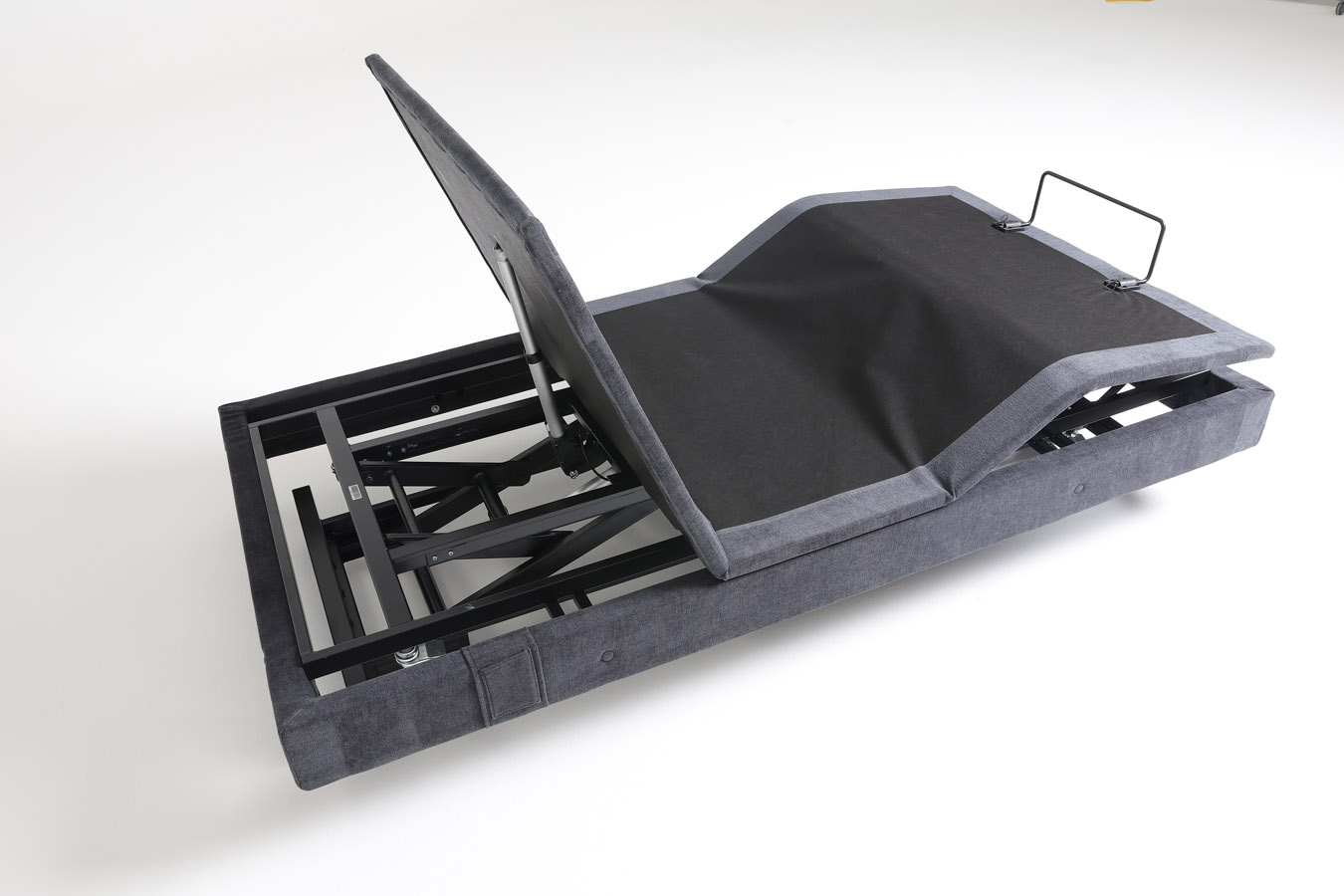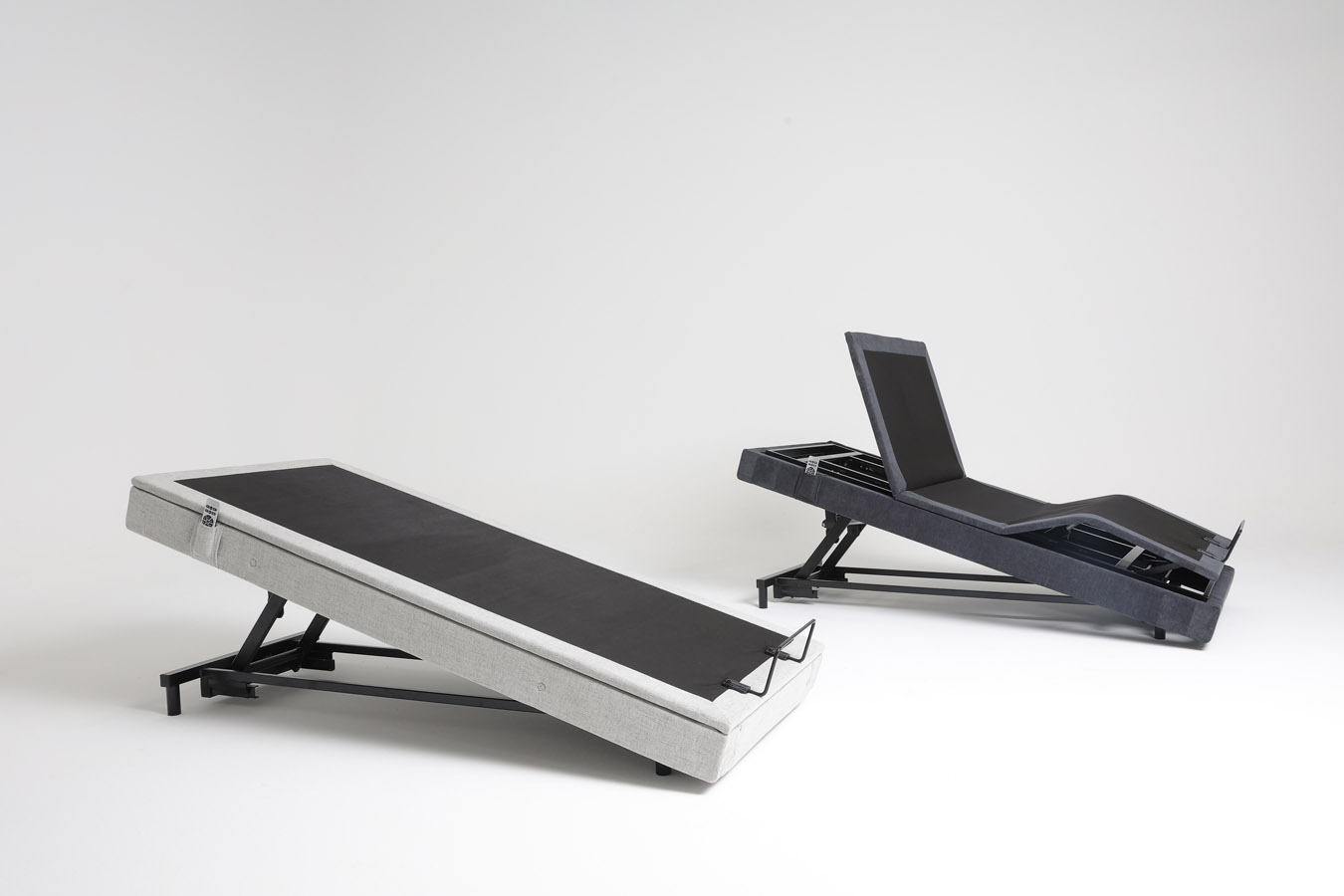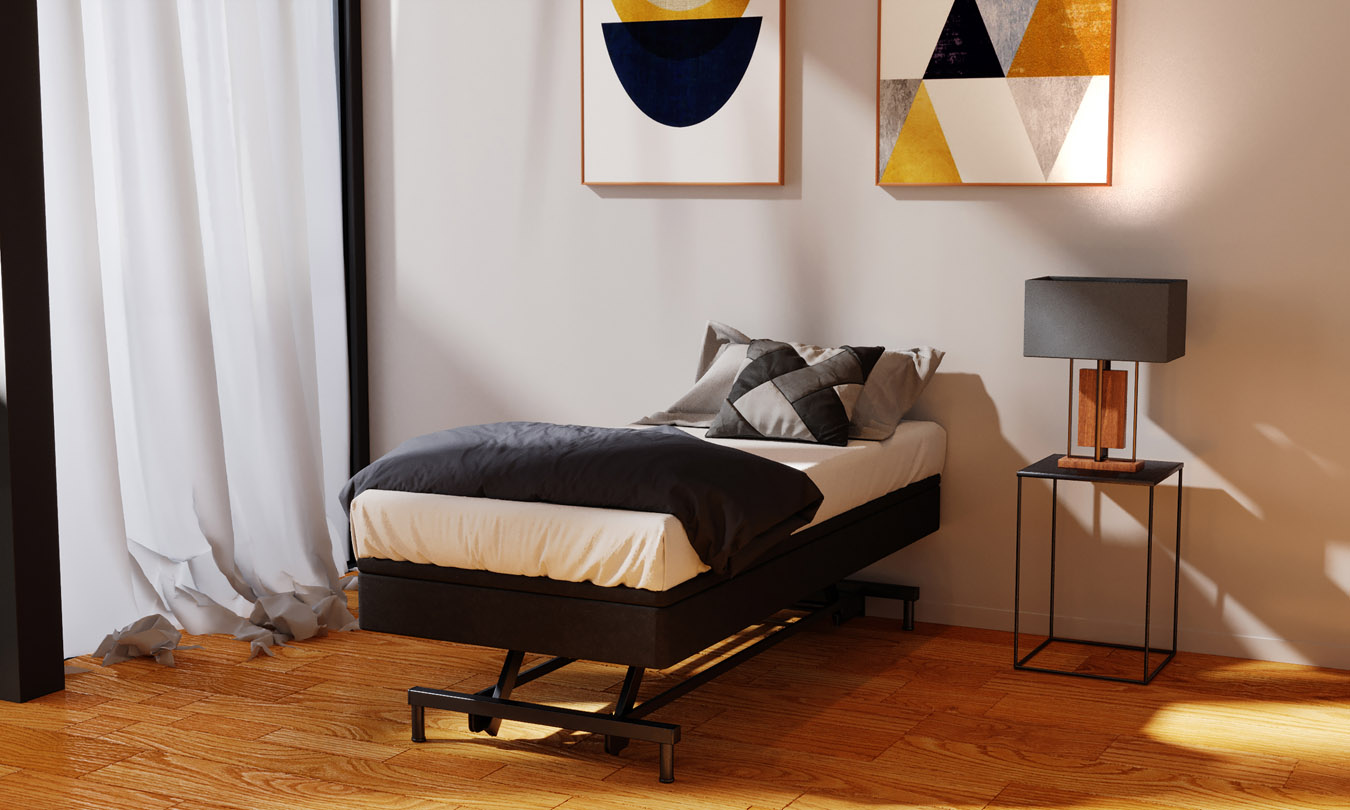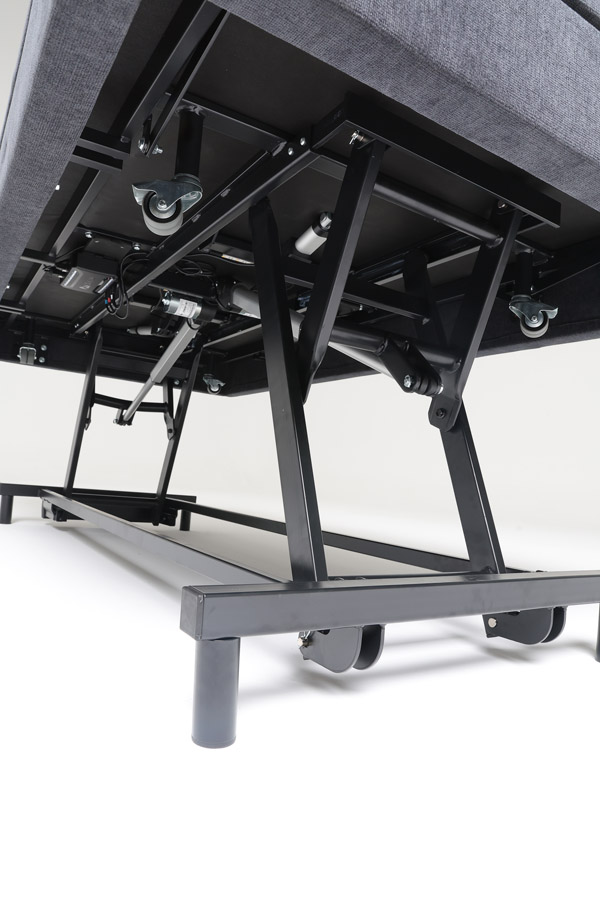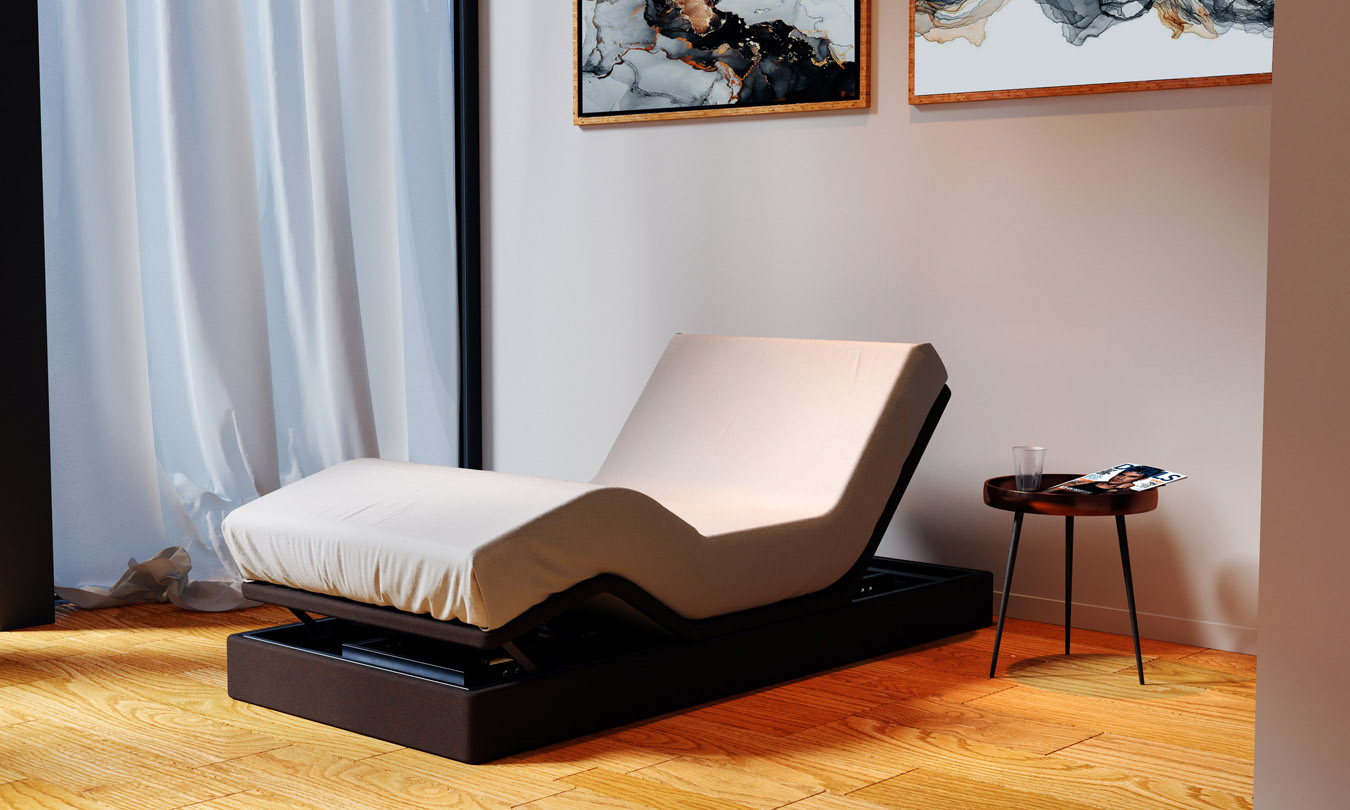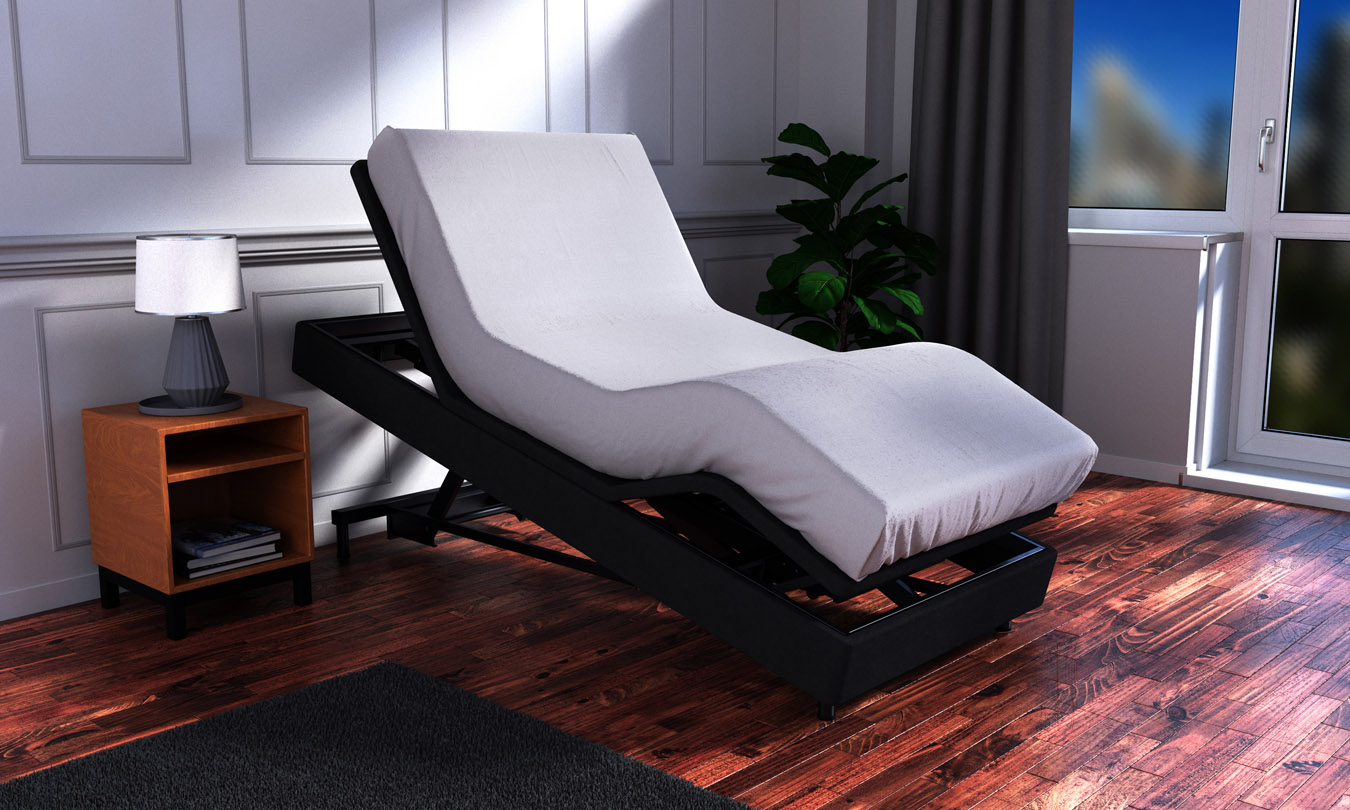The environment in which someone lives has a direct relationship on their mental health. It can influence sleep health, mood, behaviour, motivation, stress levels, and in some cases their immune system and physical health. Existing adjustable beds are split into two categories: limited functionality beds focused on providing basic movement to a general consumer with no high care needs, that fit aesthetically into a modern bedroom, or clinical beds that aid the medical care of a user but make the bedroom environment feel sterile.
Sleeptite spent three years working with engineers, designers, and contract manufacturers from around the world to design Sirius. Influenced by the latest trends in consumer bedroom furniture, Sirius was designed using the same principles as non-assistive technology beds, whilst achieving clinical functionality for both low and high care users. Sirius can be further accessorised with headboards, footboards and companion beds, seamlessly integrating into any bedroom.
Sirius can be set to any height between 200mm – 750mm (measurement based on floor to top of bed surface) allowing care givers and healthcare staff easy access to provide treatment and safe transfers, while also adding to the aesthetic of the user’s bedroom environment.
One bed that caters to low or high care requirements also provides tangible financial benefits to both facilities and home care recipients alike. Additionally, optional extras can be retrofit at any time, ensuring Sirius will remain a suitable option for users, regardless of their care requirements.
Sirius is a registered medical device (TGA) that meets safety and risk requirements for the user and carer without turning the bedroom into a sterile environment, assisting in the daily treatment of a user’s mental health and wellbeing while also caring for their physical health and the carers safety.

